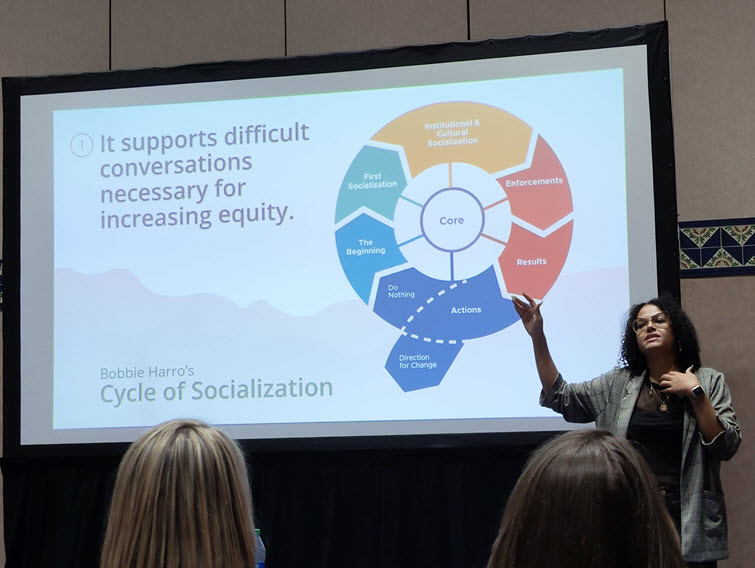This was one of the most memorable sessions in the entire conference – not only was it thought-provoking, but the presenters Megan and Jess really connected with the audience emotionally through storytelling and sharing their own experience with this topic!
Find the full slide deck for the presentation posted on the Learning 2022 Resources Page (highly recommend!!)
301 Nurture Psychological Safety in the Workplace: What Learning Leaders Can Do
Speaker: Jess Jackson and Megan Torrance, TorranceLearning
My Takeaways:
- Why is Belonging important? If people don’t feel comfortable asking for help, they cannot perform at the highest level.
- Psychological safety = The belief that the environment is safe for interpersonal risk taking.
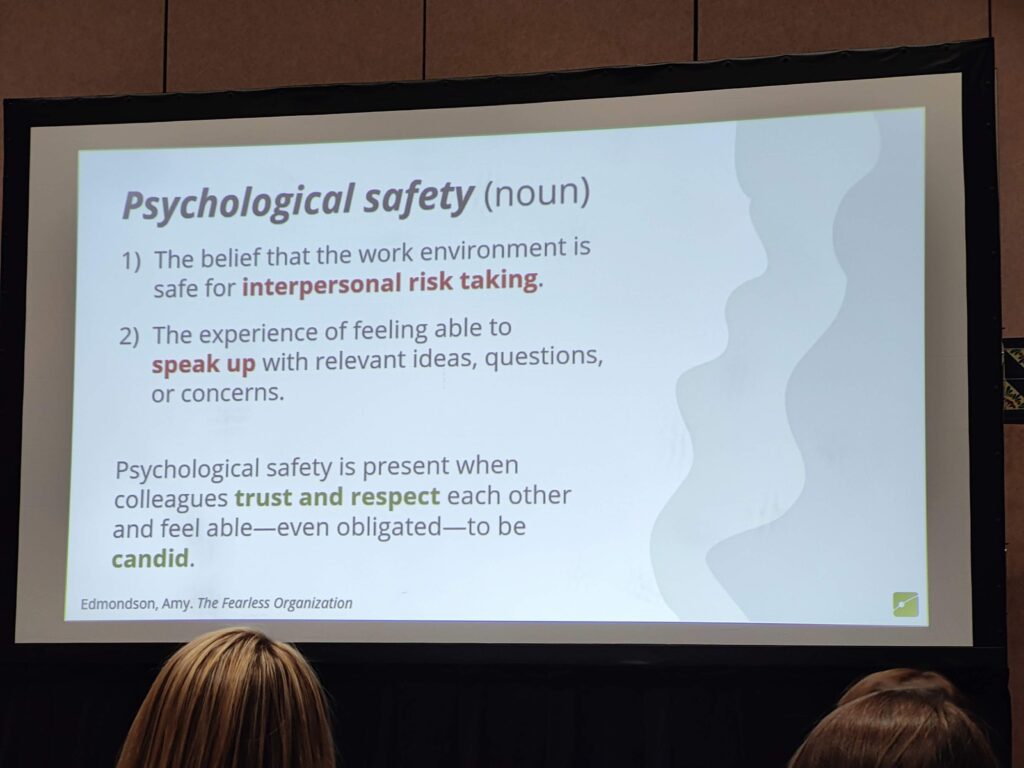
- Why is Psychological Safety important?
- It supports difficult conversations necessary for increasing equity. (Jess shared a powerful story about her experiences driving to work in Detroit) Sometimes people choose to ignore this, to hold onto a coherent self-identify (which usually doesn’t include having a huge hole in their awareness).
- It improves performance.
- High psychological safety + high performance standards = Learning & High Performance Zone. However, this is NOT a space where everyone gets away with everything, because that is not fair.
- Anxiety Zone is energy consuming. Watching your every move.
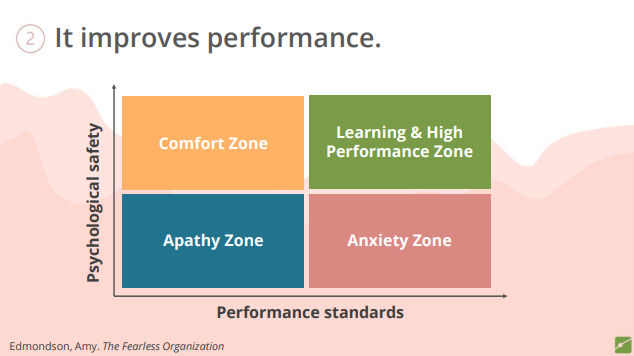
- It’s a tool for managing serious risks.
- Not a pie; there is enough for everyone. In fact, the more you have, the larger it gets. Being intentional about psychological safety doesn’t only help the marginalized, but helps everyone.
- How do we nurture psychological safety at work?
- Frame the work. Set expectations about failure and uncertainty.
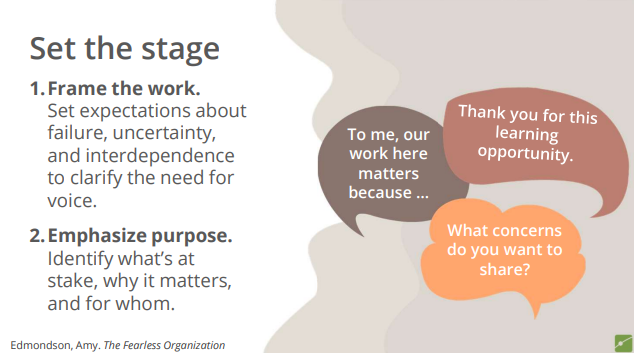
- Demonstrate situational humility. Ask good questions rather than rhetorical ones. “I don’t know; I might miss something, so I want to hear from you.”
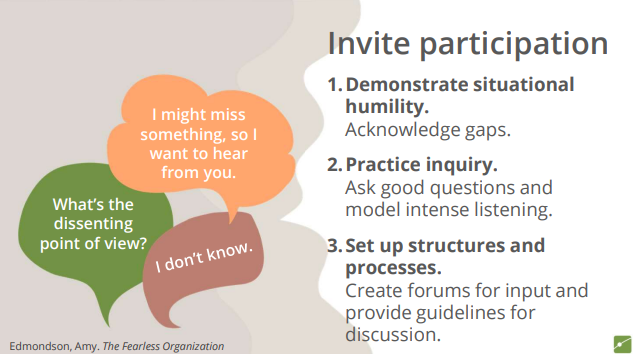
- Express appreciation. Listen, acknowledge, and thank. “Thank you so much for speaking up.”
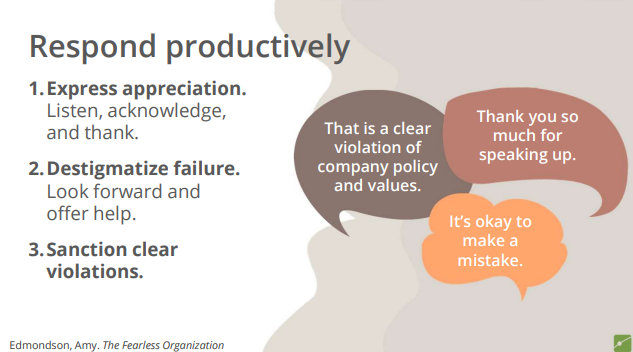
- Frame the work. Set expectations about failure and uncertainty.
- Food for Thought: Is the company aligned with your values?
- People leave managers; OR
- People leave companies because they aren’t doing anything about the manager…?

